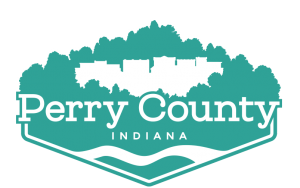Perry County Drug Court
What is a drug court?
Drug Court is a special court designed to handle non-violent, substance abusing offenders by providing court supervision, random drug testing and intensive treatment services. The drug court pulls together community resources by creating a team consisting of the judge, prosecutors, public defender, probation officers, law enforcement officers, and treatment specialists as well as other community leaders. The offender is held responsible for his/her actions by the court with immediate incentives and sanctions.
Do drug courts work?
Since drug courts began in 1989 there have been over 300,000 offenders participate in drug court programs with 71% of all offenders having either successfully completed the program or are currently active in the program. According to a 2001 research study conducted by Columbia University’s National Center on Addiction and Substance Abuse, drug court programs provide “closer, more comprehensive supervision and much more frequent drug testing and monitoring during the program than other forms of community supervision” and “drug use and criminal behavior are substantially reduced while offenders are participating in drug court.” The average recidivism rate for those who complete the drug court program is between 4% and 29%, as compared to 48% for those who do not participate in a drug court program.
Do drug courts save money?
Incarceration of drug using offenders costs between $20,000 and $50,000 per person, per year. Whereas, a drug court program typically costs between $2,500 and $4,000 per person, per year. Offenders in the drug court program are responsible for paying a $500.00 drug court fee along with all other costs of treatment and drug testing. Are drug courts “soft on crime”? Drug courts control the participants’ drug usage and activity by frequent drug testing, intensive supervision and judicial monitoring by imposing immediate sanctions that include jail time in response to violations of the rules of the program. Without drug courts the offenders will receive little jail time, supervision and drug testing, giving the offenders little reason to change their behaviors. Drug courts also provide incentives to offenders that are complying with program requirements. The incentives can include applause in court, limited gift certificates, and advancement in the program.
What is the purpose of the Perry County Substance Abuse Court?
The purpose of the Perry County Substance Abuse Court is to assist offenders in becoming and remaining drug and alcohol free, to improve the quality of life for the offender, his or her family, all of those around them, and our community.
How is the Perry County Substance Abuse Court funded?
The Perry County Substance Abuse Court uses existing staff, supplies and equipment as well as existing community resources and services to increase the cost effectiveness of the program. The Court is funded by state grants and from participant fees.
Who is eligible for the Perry County Substance Abuse Court?
The Perry County Substance Abuse Court may accept non-violent, substance abusing offenders who have not committed a manufacturing or dealing offense or do not have a history of firearm violations. To be eligible for the program, the offender must have a history of alcohol or drug abuse, be at least 18 years old, have adequate transportation to the required meetings and hearings, and have the desire to participate in the program.
What are the requirements of the Perry County Substance Abuse Court?
This program is not a right of the offender. It is a privilege for the offender to be in the program. The program consists of four phases. In the first phase, the offender is required to attend weekly requirements consisting of case management with the Coordinator, a court hearing, a treatment group session, at least four NA/AA meetings and drug testing at least once per week. Phase II consists of every other week case management and court hearings, once per week treatment group session, at least one drug screen every week, and at least four NA/AA meetings. Phases I and II also consist of a 10:00 p.m. curfew for all offenders. Phase III consists of once every three weeks for case management, court hearings and drug testing, active in treatment services and NA/AA meetings. Phase IV consists of a once per month case management meeting, court hearing and drug testing and treatment and NA/AA meetings as required.
If you have any questions or are interested in further information about the program or how you can be involved, please feel free to contact Traci Fischer, Coordinator, at 812-547-9775.
